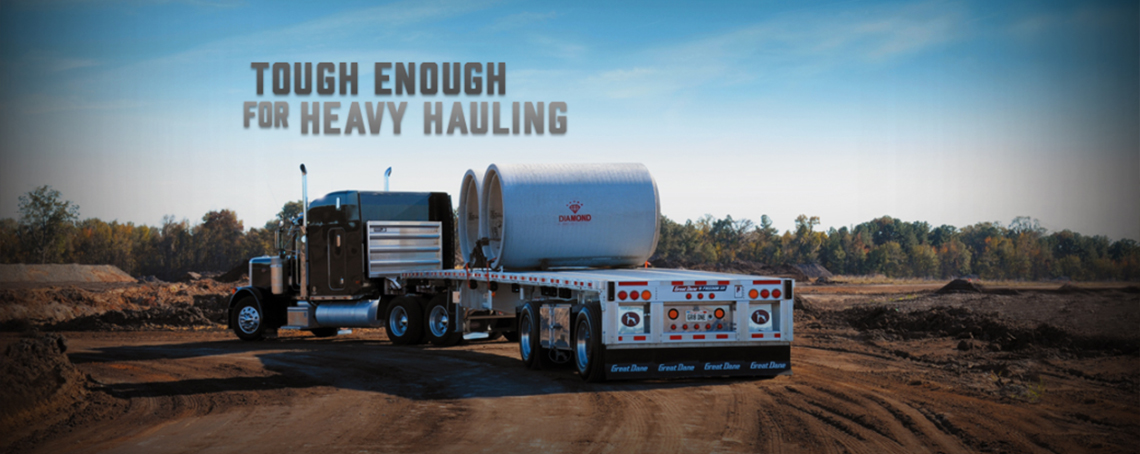Factors to Consider When Choosing a Trailer: A Comprehensive Guide
January 30, 2025 - 8:40:57 am

Choosing the right trailer is a critical decision for any business involved in hauling goods. The wrong choice can lead to inefficiencies, safety hazards, and increased costs. This comprehensive guide outlines the essential factors to consider when selecting a trailer, ensuring you find the perfect match for your specific needs.
1. Payload Capacity (GVWR and GAWR):
- Gross Vehicle Weight Rating (GVWR): This is the maximum permissible weight of the fully loaded trailer, including the trailer itself and its cargo. It's crucial to know the GVWR to avoid overloading, which can damage the trailer, create safety hazards, and result in fines.
- Gross Axle Weight Rating (GAWR): This specifies the maximum weight each axle can support. Ensure the GAWR of each axle, when combined, meets or exceeds the anticipated weight distribution of your cargo.
2. Trailer Type and Cargo:
The type of cargo you'll be hauling is the most significant factor in choosing a trailer. Here are some common trailer types and their ideal uses:
- Flatbed Trailers: Versatile trailers with a flat deck and no sides or roof. Ideal for hauling construction materials, machinery, and other oversized or irregularly shaped cargo.
- Dry Van Trailers: Enclosed trailers designed for transporting palletized or boxed goods that need protection from the elements.
- Reefer Trailers (Refrigerated Trailers): Temperature-controlled trailers used for transporting perishable goods, such as food, pharmaceuticals, and other temperature-sensitive cargo.
- Hopper Trailers: Designed for hauling bulk materials like grain, sand, and cement. These trailers feature bottom or side discharge mechanisms for easy unloading.
- Dump Trailers: Used for transporting and unloading loose materials like dirt, gravel, and construction debris. They typically feature a hydraulic lift that raises the front of the trailer to dump the load.
3. Trailer Dimensions:
- Length: Trailer length is critical for determining how much cargo you can transport. Consider the length of your typical loads and any legal length restrictions in the areas you'll be operating.
- Width: Standard trailer widths are typically 8.5 feet (102 inches). However, some specialized trailers may have wider dimensions for oversized loads, requiring special permits.
- Height: Trailer height determines the maximum height of your cargo. Be mindful of bridge clearances and overhead obstructions.
4. Trailer Construction and Materials:
- Frame Material: Trailer frames are typically made of steel or aluminum. Steel offers superior strength and durability, while aluminum is lighter, improving fuel efficiency.
- Decking Material: Decking materials vary depending on the trailer type and intended use. Common options include wood, aluminum, and steel.
- Side and Roof Material: Dry vans and reefers typically feature aluminum or composite side and roof panels for weather protection.
5. Axles and Suspension:
- Number of Axles: The number of axles affects the trailer's weight capacity and stability. More axles generally mean higher weight capacity and better weight distribution.
- Suspension Type: Different suspension systems offer varying levels of ride comfort and stability. Air ride suspension is common for sensitive cargo, while spring suspension is more common for rugged applications.
6. Brakes and Lighting:
- Brake System: Ensure the trailer has a reliable brake system that meets federal and local regulations. Air brakes are common for heavy-duty trailers.
- Lighting: Proper lighting is crucial for safety, especially during night driving. Ensure all lights, including brake lights, turn signals, and marker lights, are functioning correctly.
7. Maintenance Requirements:
- Regular Inspections: Regular inspections are crucial for identifying potential problems early on. Check brakes, tires, lights, and other components regularly.
- Lubrication: Proper lubrication of moving parts, such as axles and hinges, is essential for preventing wear and tear.
- Tire Maintenance: Maintaining proper tire pressure and rotating tires regularly can extend their lifespan and improve fuel efficiency.
8. Considering Specialized Features:
Depending on your specific needs, you might consider specialized features:
- Tie-Down Points: Essential for securing cargo on flatbed trailers.
- E-Track or Logistics Posts: Provide additional securement options inside dry vans.
- Temperature Control Units (Reefers): For transporting perishable goods.
- Ramps or Liftgates: For easier loading and unloading.
Working with Wallwork Truck Center:
Choosing the right trailer can be complex. Wallwork Truck Center offers expert guidance to help you navigate these factors and find the perfect trailer for your needs. We can help you assess your hauling requirements, explore different trailer types and configurations, and ensure you make a sound investment. By carefully considering these factors and partnering with Wallwork Truck Center, you can select a trailer that maximizes efficiency, safety, and profitability for your business. For more information about any of our trailers or if you’d like to stop in and check out our inventory, please contact Dan McCormack at 701.476.7476.

